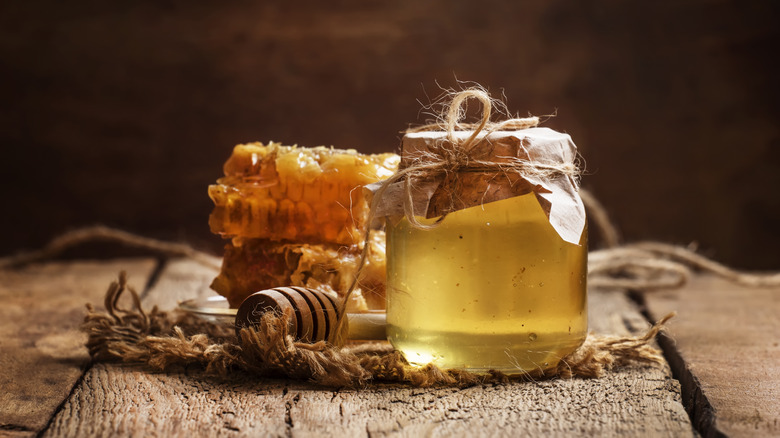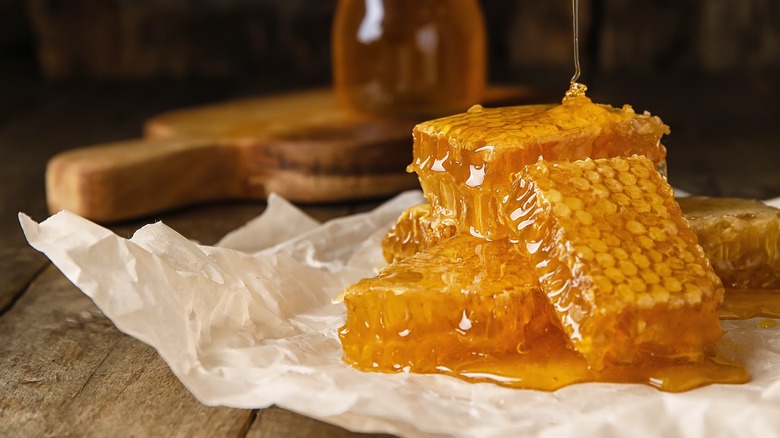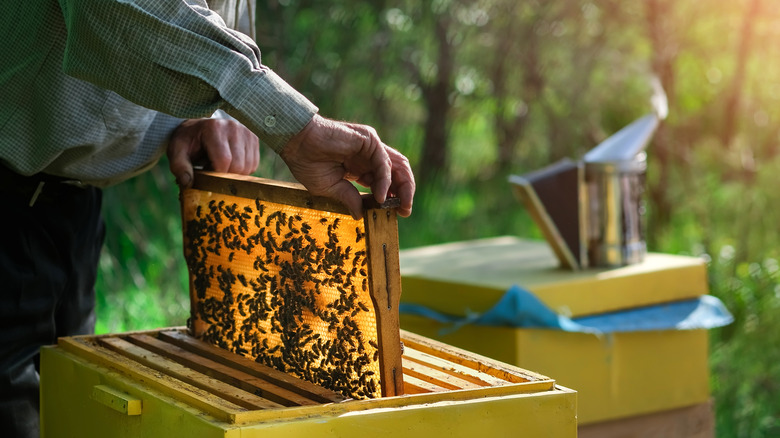The World's Oldest Jar Of Honey Is From 3500 BC
For much of the last century, historians believed that Egypt could lay claim to the oldest known jars of honey. This is not the case anymore, as more recent discoveries have found trace remnants of the bee's golden confection on ceramic vessels inside tombs in the nation of Georgia. While the 3,000-year-old jars of ancient honey from Egypt are nothing to buzz off, these newly unearthed remnants are 2,000 years older than the previous record holder.
Araña cave paintings in Valencia, Spain display that humans have harvested honey in some fashion for at least the last 8,000 years, but these artifacts found in Georgia in 2003 are the furthest back in time we have found physical evidence of the honey itself. Proof of how and where the honey was stored has further enlightened scholars about the intellect and customs of the world from so long ago. It's unconfirmed whether or not these ancient civilizations knew the honey would last longer than any of their lifetimes, but it's an incredible example of honey's staying power.
King Tutankhamun's honey is dethroned
The ancient Egyptians are likely the most famously known civilization to utilize the unique properties of honey in their day to day lives with hieroglyphics depicting the keeping of bees and harvesting of honey outside of the Sun Temple. This long-standing association of early beekeeping and Egypt was only furthered when the previously mentioned sealed jars of honey were found after researchers pillaged the tomb of King Tutankhamun in 1922.
Perhaps the bravest and most adventurous thing those explorers did on their journey was taste the forbidden honey and found, much to their surprise, that it was still fresh and sweet after all that time, and not at all cursed. That is because the natural acidity and low moisture in honey will keep it safe to eat for a long time if sealed properly. Under the right conditions, even it were to crystallize, a jar of honey could technically be edible forever.
The original beekeepers
With the discoveries of honey in Georgian tombs, researchers believe that Georgia was not only heralded as having the first known winemakers in recorded history but potentially the first recorded beekeepers as well. As such, Georgia claims to be the birthplace of honey. Considering that they are one of the first cultures that figured out how to home and domesticate wild bees in man-made hives, we here at Tasting Table think they more than earned that title.
Similarly to the Egyptians, Georgians utilized honey for medicinal purposes in burial processes. Berries cured in honey and containers of pure meadow flower, berry, and linden honey each were buried with the deceased as sweet treats that they could carry into the afterlife. In some cases, honey was part of the embalming process itself, leading to exquisitely preserved artifacts that haven't been ravaged by time. After all, life is short, honey is forever.


